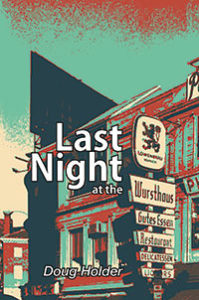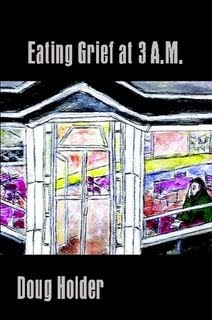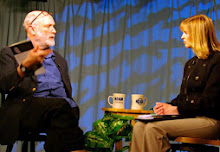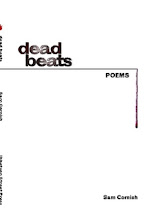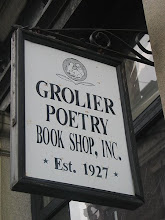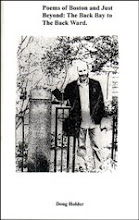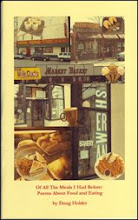I have had the pleasure to interview Ed Hamilton, the author of "The Legends of the Chelsea Hotel," a number of times and he had fascinating stories about the titled hotel, that he still lives in with his wife Deborah. The Chelsea is gutted, and will eventually be a boutique hotel, with some superficial bohemian touchings. But this grand building in the Chelsea section of New York City, once housed famed artists, musicians, and writers like Thomas Wolfe, Sid Viscous, Bob Dylan, Dylan Thomas, Patti Smith, as well as the obscure, eccentric and insane.
It was a place where one could a get a reasonably priced room and live the life of an artist. This has all but vanished as big developers and moneyed interests have taken over the city. A few years back Ed said he was working on a novella, and short story collection, that took on the clash of cultures of the old and new. His characters, struggling artists and writers, are forced to confront their own obsolescence in the face of this surge of capitalist expansion. I told Ed to send his manuscript to Gloria Mindock of the Cervena Barva Press, and now the book " The Chintz Age" will be out this fall. Here is an excerpt:
The Chintz Age
Traditional fare wasn’t Martha’s specialty, and in fact she had never cooked a turkey before, but she figured, how hard could it be? She wanted to do something special for her daughter and her daughter’s boyfriend, who were coming into the city from Connecticut today to take over her apartment, and, Martha wanted to believe, to take up the torch of Bohemianism in the East Village—even if Taylor was studying fashion and Brock, well, he had apparently landed a high-paying job with a company called Google or something ridiculous like that. A fat, black-and-white tom cat curled in and out of Martha’s legs as she prepared the stuffing at her kitchen counter, mewing until she flung him a scrap.
This was going to be the last dinner Martha would ever cook in the old loft on Avenue A—appropriately, a Thanksgiving dinner. Or maybe not so appropriately, since what, after all, did she have to be thankful about? Thankful for having been part of an ongoing tradition of struggle and resistance? Sure. Thankful for her artistic achievements? Of course. But that was all in the past; the present reality was that she was worn out and used up, being replaced, forced to give up the apartment—including her beloved kitchen with its glass-fronted art deco cabinets and its ancient, temperamental gas stove—and the life she loved. True enough, this was simply the inevitable changing of the guard, the old for the new, and not to be mourned but rather celebrated; though just as inevitable, perhaps, were Martha’s own bittersweet feelings of nostalgia and regret. The cat—predictably enough—turned up his nose up at the giblet and wandered off into the living room.
Martha Weatherly was a photographer and artist who had lived in New York for almost three decades. She had built a career by photographing and painting the fabulous and eccentric denizens of the East Village demimonde—with a few random hookers and drag queens thrown in for good measure. In the end, Martha’s money had run out. By this point she hadn’t had a show in nearly six years, a situation directly connected with her age, she was the first to acknowledge, the better part of her success having come when she was a young, attractive, sexually uninhibited woman. Lately she had been reduced to relying on “loans” to pay the rent, a thinly veiled form of charity, as she knew that, in all likelihood, she would never be able to repay most of them. Her ex-husband Ronald Billings, her daughter’s father, was her biggest creditor, and he was now demanding a bit of payback—not that she could blame him. The deal was, she was giving up her super-cheap apartment, which under the rent stabilization laws could go to a family member, and moving to Connecticut to take care of her eighty-seven-year-old, bedridden and incontinent ex-mother-in-law.
It wasn’t as bad as it sounds. Martha would receive a salary, room and board, and basically the run of the mother-in-law’s small house. She even liked the old woman. It was the loss of the apartment that hurt, though finally, what choice did she have? She had burned a lot a bridges—oh, boy, had she. When you’re a strong person, as she had had to be to succeed, when you put yourself out there and say, this is who I am, take it or leave it, there’s always going to be people who don’t like it, there’s always going to be people who hate you. And so the chickens had come home to roost, as she had known all along they eventually would.\
Earlier that morning, Martha had been throwing out junk she had accumulated over the past thirty years, tidying up, discarding anything that she didn’t think Taylor and Brock would want or need. Quite a pile had accumulated at the curb, and, taking a break from her dinner preparations, Martha chanced to look through the window to see a scruffy man, most likely homeless, scrounging through the books and record albums, the old clothes, the dishes, and the knick-knacks that had so recently been hers. At first she didn’t give it a second thought—she was glad to see that someone might have a use for her things—but looking a bit closer, at the balding head with its scraggly halo of unkempt hair, the unshaven face, the thin, compact body, she decided that the man reminded her of someone she knew, or, rather, had once known, many years before. Despite the cold, the man was not warmly dressed, wearing only an oil-stained khaki raincoat as his outer layer, leading Martha to think at once of a warm down coat, a man’s coat, that had been hanging in the back of her closet for quite some time. It would probably be too big for him, but it was a far sight better than the threadbare rag of the raincoat. Maybe he could use a couple of blankets as well, Martha thought as she scanned the sad, nearly bare closet, deciding on a whim to throw in a knit hat and scarf that she had never particularly liked.
Fresh out of art school, Martha had moved to New York in the early eighties, on the invitation of an older friend. Though Martha had at first been worried about what she was going to do for rent money, it turned out that the friend lived in a squat on East Second Street. Martha had always been good with her hands and wasn’t afraid to get them dirty, so she fit in perfectly with the other do-it-yourself homesteaders and anarchists. She worked several hours a day fixing the place up and had plenty of time between the scattered odd jobs she took for spending money to devote herself to painting and photography. And while she considered herself primarily a painter, it was through her photographs that Martha first attracted the attention of the art world. Her photos of the squat—the make-shift construction, the stained mattresses and broken-down chairs, the water jugs and piss buckets, the jerry-rigged power lines patched into lamp posts, the young, charmingly scruffy, tattooed ragamuffins, their clothes piled on in layers against the cold; and then the scowling police with their helmets and riot batons, the roadblock, the teargas, the bottle throwing, the beatings; finally the mounds of rubble at the curb, the hash of clothes and belongings being shoveled into a truck mere yards from the huddled forms of the newly homeless—these images had made Martha’s reputation, had established her career and brought her fame, her work having been featured in magazines, newspapers, and galleries worldwide. Martha’s own involvement in the scene, and her vocal commitment to its ideals, had seemed to transfer an immediacy and a poignancy directly to the images themselves. Ever conscious of her own image, she had even had the presence of mind to have one of her comrades snap a shot of her sitting dazedly on the curb, bleeding from a gash to her scalp. The cops had tried to take her camera, but she had doggedly held onto it.
It was at the squat that Martha had met Howard Coots, the young man whose memory the old homeless man had conjured. Little Howard: never quite handsome, but cute in his own dark way, elflike, a kind of trickster, quick-witted and sarcastic. She had almost had an affair with Howard—the attraction, she believed, had been mutual—and it probably would have happened if her future husband hadn’t also been living in the squat. More her type, Ronald was a large, bearish man, more obviously able to protect her, certainly in the physical, though also in the financial sense, as Ronald was of a decidedly practical bent. Still, Martha had been drawn to Howard’s manic energy, his vitality, and his passion for what he believed in. Howard had been one of the more active members of the squat—politically, that is. Truth be told, despite his considerable enthusiasm for organizing protests and the like, Martha remembered him as being a bit on the lazy side when it came to physical labor. But that was secondary. Howard had been an artist, and, like her, devoted to his craft. There were plenty of devoted people in New York then, people with the courage of their convictions, people who wouldn’t compromise their artistic visions (though there were a damn lot of the other kind too, ready to sell out when the price was right). That was the Golden Age, the eighties, when the art world and the social scene of the East Village and Soho were really cooking.
Traffic was light coming into the city that afternoon, the streets of Harlem quiet for the holiday and relatively deserted, dotted only here and there with a scattering of casually dressed people, some carrying covered dishes on their way to dinner, others socializing in front of the few stores that were open. “Now tell me exactly what we’re doing today?” Taylor said.
Taking his eyes from the road, Brock glanced at her briefly. “You know as well as I do that we’re going to the East Village to eat Thanksgiving dinner with your mother.”
Brock was driving Taylor’s father’s brand new midnight-blue Lexus—an indication of Ronald’s trust in the young man. The young couple was moving to the city. They had new jobs; they were starting their new life together.
Taylor couldn’t sit still. She squirmed in her seat. She smoothed her blond hair. Taylor was tall, unlike her mother (she got it from her father), very thin, model-thin, a bundle of nervous energy. This unease, this unsettled disposition, this, for what it was worth, was what she had inherited from her mother.
Traffic picked up a bit toward Midtown, with all the busses going in and out of the Port Authority, with the sidewalks clogged with tourists from Europe and Japan who didn’t give a hoot about Thanksgiving, and with excited families flocking to the Macy’s parade. Brock and Taylor were stopped at a light behind a double-decker tour bus. “It’s all so ridiculous!” she blurted out.
Brock was thin like his girlfriend, the same height as Taylor, and so not short, though not exactly tall for a man, his dark hair fashionably mussed. “She says she’s a good cook. She wants to do something for us.” Brock hadn’t heard this from Taylor’s mother, and only knew it second hand, from Ronald. In fact, he had met Martha only once before, which made him nervous as well, though he kept his own unease in check. He was the one who had to keep it together.
“For us. I see. That explains it, then, since she’s never done anything for me. And as for being a cook, well, that kind of goes along with motherhood, in my mind at least.” Brock didn’t understand, she thought. He had grown up with both his parents. Well, almost: they had only divorced recently, while he was in college.
“At least she’s trying, so maybe give her a break. She’s giving us a fucking great apartment.”
“For money.”
“Yeah, for money. But it can’t be easy getting old like that and suddenly finding yourself poor.”
“Oh, I’m so tired of everyone making excuses for that woman! First my father and now you.” She threw up her hands in exasperation. “I feel like screaming!”
Brock know better than to say anything more. Heading down Second Avenue, the cars became sparse again. They drove through the last vestiges of the old Jewish neighborhood, past the ornate façade of a former Yiddish theatre, past a couple of kosher bakeries conspicuous amidst the trendy bars and restaurants that were springing up. A few of the bars were opening for business and only just now hosing down their sidewalks.
“Well, at least you didn’t say it was because she was an artist,” Taylor said. “The great artist. If I hear that one more time I think I’ll vomit.”
Taylor couldn’t remember her mother ever living with the family, though in fact Martha had lived with her husband and daughter in their apartment on the Upper West Side for three years before moving to her present location in the East Village. Growing up, Ronald had told her: “Your mother loves you, she’s just very focused on her career and sometimes she doesn’t see what’s important.” She’d had to make some difficult choices, Ronald had given his daughter to understand, and sometimes maybe she couldn’t help hurting people. “I know she regrets not really being a mother to you,” he had told her, “but she’s basically a good person.” Recently, however, Taylor had begun to doubt her father’s sincerity in this regard. Martha had been turning up with increasing frequency lately, usually to take out a loan, and Ronald had been unable to hide his satisfaction at this turn of events. Taylor intuited that this was in some sense her father’s revenge, believing that he got a kick out of this sort of demonstration that his ex-wife still needed him, even after all these years. To some extent, Taylor shared in his satisfaction. On the other hand, Ronald had done his work all too well, and Taylor had long since fallen under the spell of her mother’s self-aggrandizing mythology. Taylor admired her mother for her talent and determination. She had long wanted to impress the older woman, and perhaps even to emulate her in some way. Taylor was in awe of her mother.
Getting no response from her boyfriend, Taylor continued: “I’ve only seen the woman a handful of times in my life, mainly on holidays. She always shows up with crappy gifts like art books and sketch pads and paint sets, when she knows I’m not interested in that shit. And always snapping photos! Not like normal snapshots, but obsessively, whole rolls of film, trying to get you when you’re not looking, when you least expect it. At least I’ve never shown up in any of her shows, I can thank my lucky stars for that!”
Brock sighed. “It’ll go quickly enough.”
“Oh, she’ll keep us entertained, don’t worry! She’s always up to something, and she probably won’t even notice us. Whatever she has planned, it’s about her, not us. She’s supremely self centered. That’s one thing I learned about her very early on. I seriously don’t even believe she knows that other people exist.”
As Brock backed the car into a parking space, his rear wheel crunching over the edge of a plastic garbage bag that had tumbled from a heap tossed carelessly to the curb, he said, jokingly, “You know, I don’t even like turkey.”
“You think I do!?” Taylor replied, indignant.
When she got down to the street, Martha saw that the homeless man was really messing things up, dumping out the boxes and pulling open the bags that she had stacked so neatly at the curb, strewing clothes and dishes and knick-knacks carelessly about over the sidewalk, so she couldn’t help it that her first inclination was one of irritation. But then when she saw it was Howard, for it was indeed her old friend from the squat, her irritation dropped away—she was so happy to see him!—though on another level it called to mind the sort of irritation she had felt for this man long ago. For he had always been like this, irresponsible, leaving it to someone else to clean up his mess. “I thought you might be able to use these,” Martha said as she approached him, handing over the folded winter clothes and blankets, and as she did so she wondered what had driven her down the stairs and onto the cold street. Some vague longing: desire, loneliness, nostalgia, guilt, a deep regret, perhaps a darker motive. The sidewalk was scrubbed-up now like the rest of the rapidly gentrifying neighborhood—even if, to the anointed, the very air still retained a tang of the prickly menace of bygone years, together with a delicious whiff of the old glorious freedom.
Beneath a bald head framed by wisps of thinning black hair, Howard’s face was wrinkled and weathered, stretched tight to his cheekbones, his skin yellowed, the color of nicotine—a junkie’s look, as in fact he numbered heroin among his demons. The slight hunch of his narrow back, scarcely noticeable in his youth, was now more pronounced, and the way he favored one leg as he straightened up betrayed the limp he had picked up along the line of his hard life’s journey. Though Martha couldn’t help congratulating herself on her own well-preserved state, her good health and comparative good looks, she sensed something honest in Howard’s decay. While she had long suspected that she had bought her pride and her sense of self at the expense of her authenticity and integrity, she could tell at a glance that Howard hadn’t flinched from the full fire of life, the full consequences of his youthful idealism. But then, what had he been in the old days? A comic book artist—a poor one, in her opinion—with a militant political bent. Maybe it was easier not to sell out when nobody was buying.
“Thanks, I sure can,” Howard said, taking the blankets. Then, a little embarrassed, a little nervous, glancing back down, he said, “Is this your stuff? There’s some good albums here: The Buzzcocks, X, Joy Division, Gang of Four. These kids, they’re all into vinyl now. I can sell these for top dollar. You sure you want to give them away?”
When Howard spoke, she saw he was missing a few teeth. “I haven’t played them for years,” she said. “Time to let them go.”
Martha knew she had betrayed her annoyance, because Howard glanced around on the sidewalk as he said, “Oh, sorry. Am I making a mess?” He picked up several items and put them in a box, and stuffed a wad of papers and sketch pads back into a ripped-open bag.
“You don’t remember me, do you?”
It was true that Howard hadn’t recognized Martha at first; he had thought she was just another kindly old lady, a do-gooder, a busybody. Now, looking closer, he saw through to the girl who had been there before, trapped inside the sagging skin and the chunky, thickset body. To Howard, drawing on his memories, Martha still looked young and attractive. Her face had retained a fullness, a relative lack of wrinkles, and there was a healthy blush to her skin. She must have had an easy life, he decided. Howard knew that Martha was a famous artist (what he should have been) and that made him feel inferior. Accordingly, he drew himself up more erect, tried to summon up his old self, adopted what he remembered of his old swagger, pulled on the mask of his old boyish charm.
Martha witnessed the transformation. Her instinct was to scold this irresponsible boy-man, to lecture him—for his own good, of course—though for what, she wasn’t quite sure. For messing up the sidewalk? He was continuing to pick up, albeit halfheartedly. For wasting his life? A bit late for that, though perhaps it would have to do. “So what have you been up to lately?” she began, testing the waters.
“Oh, I’m still doing my drawing. I haven’t been as lucky as you, of course.” Martha winced at that word, and Howard quickly added, “Not as successful, I mean.”
“Where can I see some of your work?” Martha understood, but she pressed him, maybe to emphasize the difference between them as artists—or rather, herself as an artist, and he as, well, a poseur, a nobody.
Howard hemmed and hawed. “Ah, well, let me see,” he said, shifting nervously foot to foot, before summoning up a few underground publications that had come out in the eighties and nineties, nothing that Martha had heard of, or remembered hearing of anyway—underground comics and anarchist zines. “It’s non-commercial art,” he said, implying, Martha thought, that her art was commercial. “I’ve always been about that,” Howard said, self-importantly. “You know, the money’s not important.”
“Where are you living these days?”
Another sore spot. This was really turning into an interrogation. Howard remembered what he didn’t like about Martha, basically that she could be overbearing, bossy, a bitch. He also remembered one of the chief attractions of his minimalist lifestyle: not having to listen to this kind of shit. Still, he desperately wanted her approval. “Uh, no place permanent. I’m kind of between apartments. Rent is so high these days.”
She gave him a sideways glance. “So, you’re homeless, in other words.”
“No! I’m staying in a shelter uptown temporarily while I look for a new apartment. It’s just hard to find anything.” Howard explained that he had left New York soon after moving out of the squat and had been drifting since then, traveling all over the country—San Francisco, Portland, Denver, New Orleans—in the early years taking up with various counter-cultural groups, even signing on for a stint in a commune in Taos, and had only come back to New York in the past year. His travels had earned him several brushes with the law, including a short term in prison for writing bad checks, though he didn’t elaborate on that unfortunate incident as yet. Over the years, he had been in and out of treatment programs for his various substance abuse problems, though he assured Martha that he had long since cleaned up his act. “But I think I’m back in New York to stay,” he went on. “I think I’ve always been a New Yorker at heart and maybe I never should have left.” There were some bad memories connected with the city, of course, though two decades later, surely he was over them. “I’d like to find a room in a transient hotel. Or a squat—that would be ideal.”
Martha barely stifled a guffaw. “No squats in the East Village anymore. At least no squats you can get into. Maybe a handful that have been legalized. All the rest were cleared out years ago.”
Ed Hamilton, 2014
PREORDER ( Click on)
To preorder:











